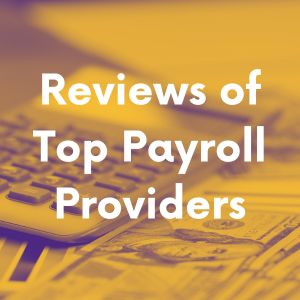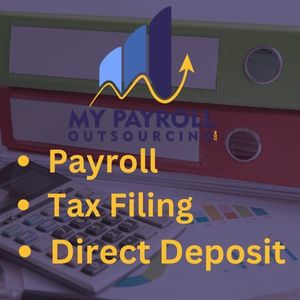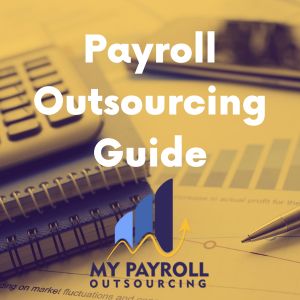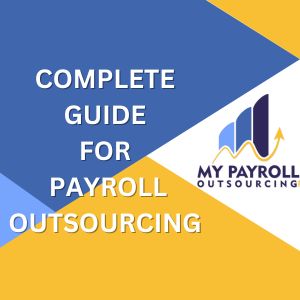
Understanding the Role of Payroll Outsourcing for Non Profits
In the nonprofit sector, where every dollar counts and the focus is on maximizing impact, managing operational efficiencies is paramount. Payroll, while a critical function, can be complex and time-consuming, diverting valuable resources away from an organization’s core mission. This is where payroll outsourcing comes into play, offering a solution that can streamline processes, ensure compliance, and potentially save costs. This blog explores the significance of payroll outsourcing for nonprofits, addressing their unique challenges and how outsourcing can offer a strategic advantage.
The Unique Payroll Challenges for Nonprofits
Nonprofits operate under a unique set of conditions that influence their payroll needs. Budget constraints are a common issue, with organizations striving to maximize the allocation of resources to their mission-driven activities. Additionally, nonprofits often deal with diverse funding sources, each with its own reporting requirements, further complicating payroll management.
Compliance and Regulatory Environment
The regulatory environment for nonprofits can be labyrinthine, with specific rules around tax-exempt status, charitable giving, and employee compensation. Navigating these regulations is crucial to maintain compliance and avoid penalties. The variability in state and federal laws adds another layer of complexity, requiring constant vigilance and adaptability.
Staffing Variability
Many nonprofits experience fluctuations in staffing due to the project-based nature of their work, volunteer contributions, and part-time positions. This variability demands a flexible payroll system capable of accommodating diverse employment arrangements while ensuring accurate and timely compensation.
Financial Stewardship
As stewards of public and private funding, nonprofits must demonstrate the highest levels of financial integrity. This includes meticulous payroll management to ensure that employee and tax payments are accurate and compliant with legal standards. Mistakes or inefficiencies in payroll can not only result in financial penalties but also damage an organization’s reputation.
Payroll challenges for nonprofits underscore the need for efficient, reliable payroll solutions. Outsourcing payroll functions can address these challenges by leveraging the expertise and resources of specialized providers, allowing nonprofits to focus on their mission-critical activities.

Understanding Payroll Outsourcing
Payroll outsourcing involves delegating payroll processes to a third-party provider. For nonprofits, this service isn’t just about processing salaries; it’s a comprehensive solution that can manage everything from tax filings and deductions to employee benefits administration. This section explores the components of payroll outsourcing and how it aligns with the needs of nonprofit organizations.
Scope of Services
Outsourced payroll services for nonprofits can include:
- Payroll Processing: Calculating paychecks based on hours worked, managing deductions for taxes, benefits, and other withholdings.
- Tax Filing and Compliance: Ensuring accurate and timely filing of payroll taxes, and managing year-end tax documents like W-2s and 1099s.
- Benefits Administration: Handling enrollments, changes, and deductions for employee benefits packages.
- Reporting: Providing detailed payroll reports that aid in financial planning and analysis.
Aligning with Nonprofit Needs
For nonprofits, the appeal of outsourcing payroll lies in the alignment of these services with their specific needs. Payroll firms specializing in nonprofit organizations understand the sector’s unique challenges, including funding structures and compliance requirements, offering tailored services that go beyond mere transactional support.

Benefits of Payroll Outsourcing for Nonprofits
Outsourcing payroll presents several advantages for nonprofits, directly addressing their operational and strategic challenges.
Cost Savings
One of the most compelling benefits is cost savings. By outsourcing, nonprofits can reduce the need for in-house payroll staff or costly software systems, translating into lower operational costs. The efficiency gained through professional management can also reduce the risk of costly errors or compliance penalties.
Compliance and Risk Management
The complex regulatory landscape is a significant burden for nonprofits. Payroll outsourcing partners keep abreast of changing tax laws and employment regulations, ensuring that your organization remains compliant. This expertise mitigates the risk of penalties and legal issues, protecting your nonprofit’s reputation and financial health.
Efficiency and Reliability
Professional payroll services streamline payroll processes, ensuring that employees are paid accurately and on time. This reliability improves staff morale and allows the nonprofit’s leadership to focus on strategic goals rather than administrative tasks.
Access to Expertise
Nonprofits gain access to a team of payroll experts by outsourcing, without the overhead costs of hiring specialists. This expertise can be invaluable in navigating the complexities of nonprofit payroll, from managing grant-specific reporting requirements to understanding tax exemptions.
Choosing the Right Payroll Outsourcing Partner
Selecting an outsourcing partner is a critical decision for nonprofits. The right provider not only offers cost-effective services but also aligns with the organization’s values and operational needs.
Understanding Your Needs
Start by assessing your specific payroll challenges and objectives. Consider factors like the size of your staff, the complexity of your payroll, and any specific issues you’ve encountered in the past, such as compliance difficulties or reporting errors.

Evaluating Providers
When evaluating potential providers, consider:
- Experience with Nonprofits: Look for providers with a track record of serving nonprofit organizations, as they will be more familiar with your specific needs.
- Comprehensive Services: Ensure the provider offers a full range of services that cover your payroll needs, from tax filing to benefits administration.
- Technology and Integration: The provider’s technology platform should be user-friendly and capable of integrating with your existing HR and accounting systems.
- Customer Support: Opt for a provider that offers responsive customer support, with clear channels for addressing issues or questions.
Implementing Payroll Outsourcing
Implementing payroll outsourcing for nonprofits requires a structured approach that not only addresses the transition of payroll processes but also ensures that the organization’s ethos, confidentiality, and compliance needs are met. Here’s a deeper dive into the key steps and considerations involved in making payroll outsourcing a success for nonprofits.
Step 1: Comprehensive Needs Assessment
The foundation of a successful payroll outsourcing implementation is a thorough understanding of the nonprofit’s specific needs. This involves:
- Analyzing Current Payroll Processes: Reviewing current payroll operations to identify inefficiencies, recurring issues, and areas needing improvement or customization.
- Identifying Compliance Requirements: Understanding federal, state, and grant-specific compliance requirements to ensure the chosen provider can meet these needs.
- Assessing Integration Needs: Evaluating the need for integration with existing HR and financial systems for seamless data flow and reporting.
Step 2: Selecting the Right Outsourcing Partner
Based on the needs assessment, the nonprofit should carefully select a payroll outsourcing partner that aligns with its operational requirements and values.
- Specialization in Nonprofits: Preference should be given to providers with specific experience and expertise in handling nonprofit payroll, as they are more likely to understand the sector’s unique challenges and compliance requirements.
- Security and Confidentiality: Given the sensitive nature of payroll information, ensuring the provider has robust data security and confidentiality measures in place is crucial.
- Cultural Fit: The provider should demonstrate a commitment to customer service and share the nonprofit’s values, ensuring a partnership that goes beyond a mere vendor-client relationship.

Step 3: Planning and Transition
Effective planning and a structured transition process are critical to minimizing disruptions and ensuring a smooth switchover to the outsourced model.
- Transition Plan: Develop a detailed plan outlining the transition timeline, responsibilities, and milestones. This plan should include training for staff on any new systems or processes.
- Data Migration: Work closely with the outsourcing partner to securely transfer employee and payroll data. This process should include rigorous data accuracy checks and validation.
- Integration Testing: Test the integration of the payroll system with existing HR and financial systems to ensure data flows correctly and reporting functions as needed.
Step 4: Communication and Change Management
Clear communication and effective change management strategies are essential to address concerns and ensure buy-in from all stakeholders.
- Internal Communication: Inform employees about the change to an outsourced payroll model, explaining the reasons behind the decision and how it will benefit them. Provide details on any changes to payroll procedures, timelines, or points of contact.
- Training: Offer training sessions for staff to familiarize them with new processes or systems, ensuring they feel confident and supported through the transition.
- Feedback Mechanisms: Establish channels for feedback on the new payroll processes, allowing for adjustments and improvements based on user experience.

Step 5: Ongoing Management and Review
After implementation, ongoing management and periodic reviews are vital to ensure the payroll outsourcing arrangement continues to meet the nonprofit’s needs and expectations.
- Regular Performance Reviews: Schedule regular meetings with the outsourcing provider to review service performance, discuss any issues, and explore opportunities for process improvements.
- Compliance Updates: Stay informed about changes in payroll-related laws and regulations, and work with the provider to ensure ongoing compliance.
- Employee Satisfaction: Periodically survey employees to gauge their satisfaction with the payroll system, addressing any concerns promptly to maintain trust and morale.
Implementing payroll outsourcing for nonprofits is a multifaceted process that requires careful planning, clear communication, and ongoing management. By taking a strategic and thoughtful approach, nonprofits can successfully transition to an outsourced payroll model, reaping the benefits of efficiency, compliance, and cost savings, while maintaining their focus on the mission-critical activities that drive their success.
For nonprofits, the decision to outsource payroll services can significantly impact operational efficiency, compliance, and cost management. By understanding the benefits and taking a careful approach to choosing a provider, nonprofits can ensure their payroll processes support their mission rather than detract from it. Outsourcing payroll allows nonprofit leaders to redirect their focus towards strategic objectives, secure in the knowledge that their payroll operations are in expert hands.

